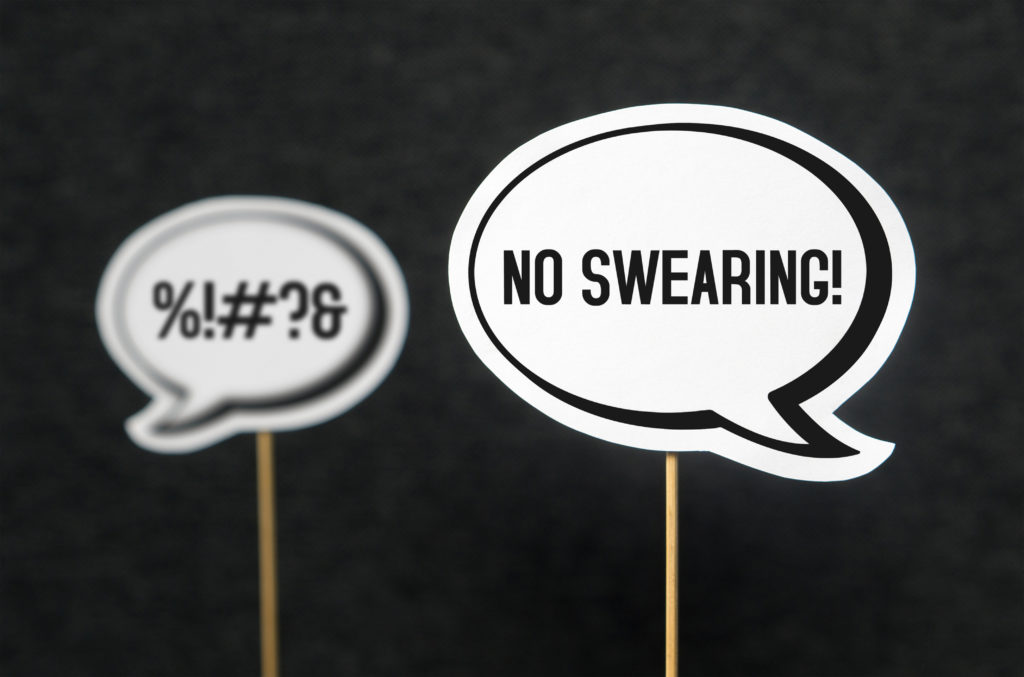Quick Hits
Daily brief research updates from the cognitive sciences

Swearing is frowned upon in many circumstances but is also used by many people in casual situations and particularly by comedians. So why do we swear if it is taboo?
A team of researchers at Keel University in the UK have just published a series of experiments in which they tried to elucidate the psychological mechanisms of swearing. It should be noted that these effects are in line with previous research. First off, they found that swearing increases physical strength – in this case it was how long participants could perform a chair push up (holding yourself for as long as possible on the arms of a chair). Other research has found that swearing increases pain tolerance which may be related.
Another experiment they conducted was in risky behaviour – in this case this was pumping up a balloon and seeing how far participants would pump with the obvious risk that it would explode. Swearing increases risk by 8%. They also noted that swearing increased self-confidence but also it had a humorous effect (also in line with previous research).
The psychological mechanisms they identify are all related to lowering self-control and “letting go”. So, swearing seems to do many things that are actually beneficial to us – no wonder we swear so much.

Andy Habermacher
Andy is author of leading brains Review, Neuroleadership, and multiple other books. He has been intensively involved in writing and research into neuroleadership and is considered one of Europe’s leading experts. He is also a well-known public speaker speaking on the brain and human behaviour.
Andy is also a masters athlete (middle distance running) and competes regularly at international competitions (and holds a few national records in his age category).
Reference
Stephens R, Dowber H, Barrie A, Almeida S, Atkins K.
Effect of swearing on strength: Disinhibition as a potential mediator.
Quarterly Journal of Experimental Psychology, March 2022.
doi:10.1177/17470218221082657
More Quick Hits
How Gratitude between Co-Workers Lowers Stress and Increases Performance
Quick HitsDaily brief research updates from the cognitive sciences ratitude is a nice thing to have, I think we all agree on that. But when it comes to the workplace some may see it is just being nice, and not being focused enough on the hard...
Brain Scans Can Predict Your Political Affiliation
Quick HitsDaily brief research updates from the cognitive sciences rain scanning of political partisans is not new and it has long been reported that brain scans can predict political affiliation. But those studies were scans of political partisans...
Children with Same-Sex Parents Are Socially Well-Adjusted
Quick HitDaily brief research updates from the cognitive sciences his is not the first study to report that children of same-sex parents are well adjusted, there are plenty, but it is one of the first to be representative and hence gives some...
Simple Exposure to New Things Makes Your Brain Ready to Learn
ouldn’t it be great if we could learn things with no effort? Well, actually we often do, and children learn vast quantities of information, and knowledge with little to no effort – think of how well we learn languages which become fiendishly...
So, Can Cranberries Improve Memory?
tend to be hesitant to report on studies of single foods doing amazing things (because many do), but this piece of research still caught my eye. So, what did this group of researchers from the University of East Anglia find? Well, they...
The Real Problem with Social Media: It Induces Dissociative States
Quick HitsDaily brief research updates from the cognitive sciences ocial media seems to hijack our brains – or at least according to popular narratives. Most of us have experienced this where you get stuck in an endless stream of content,...






